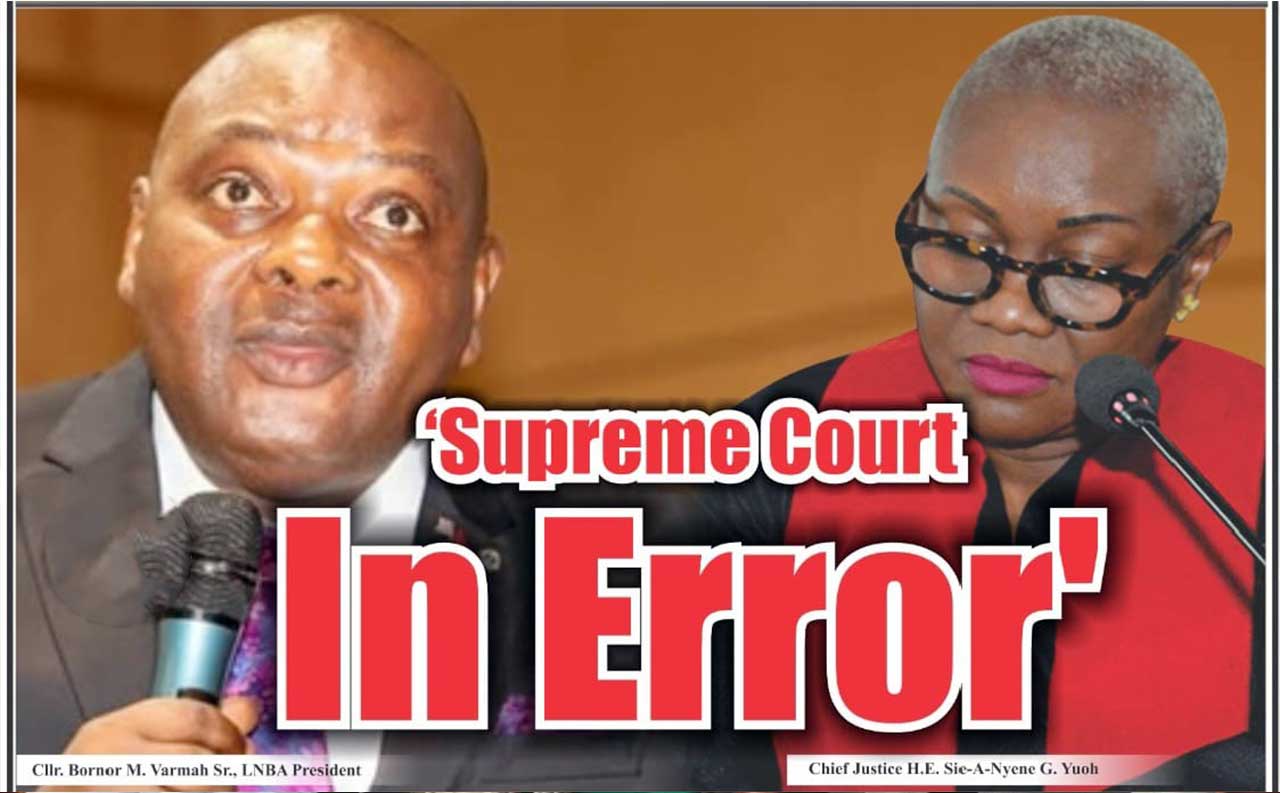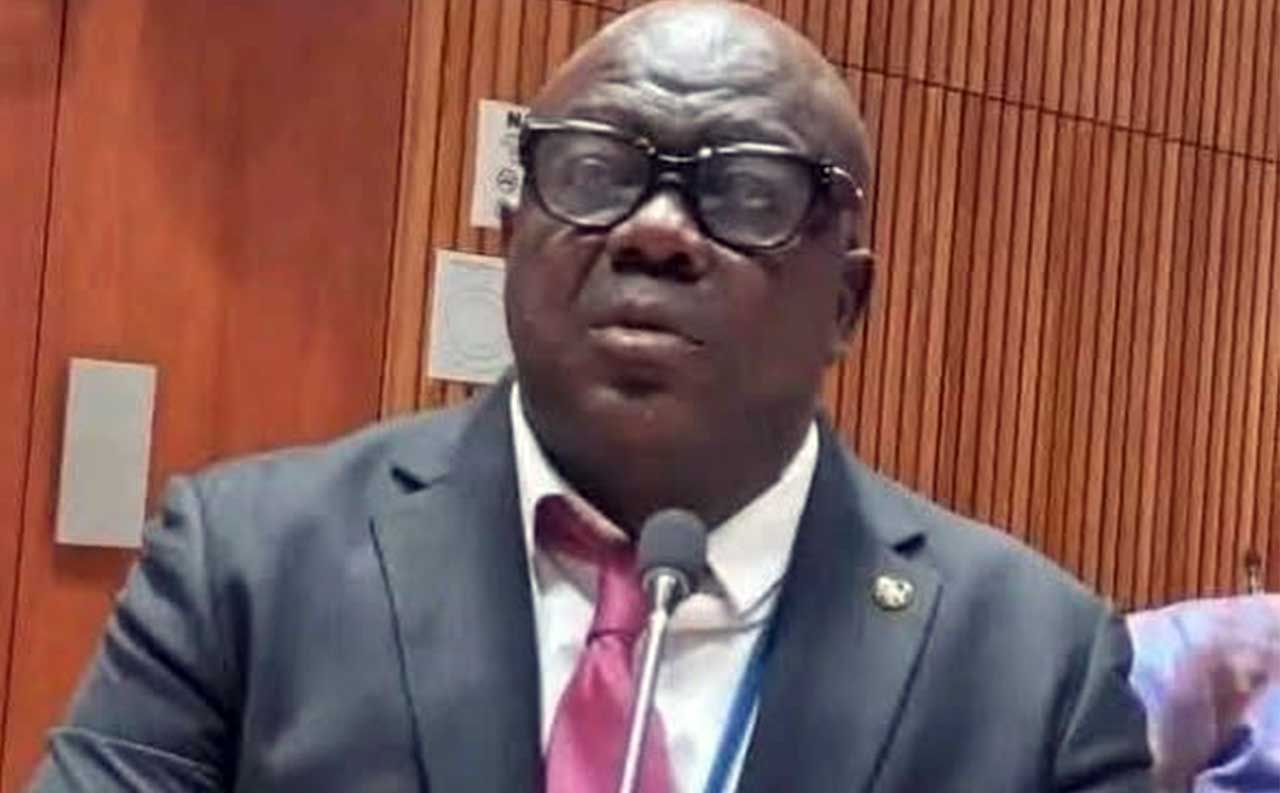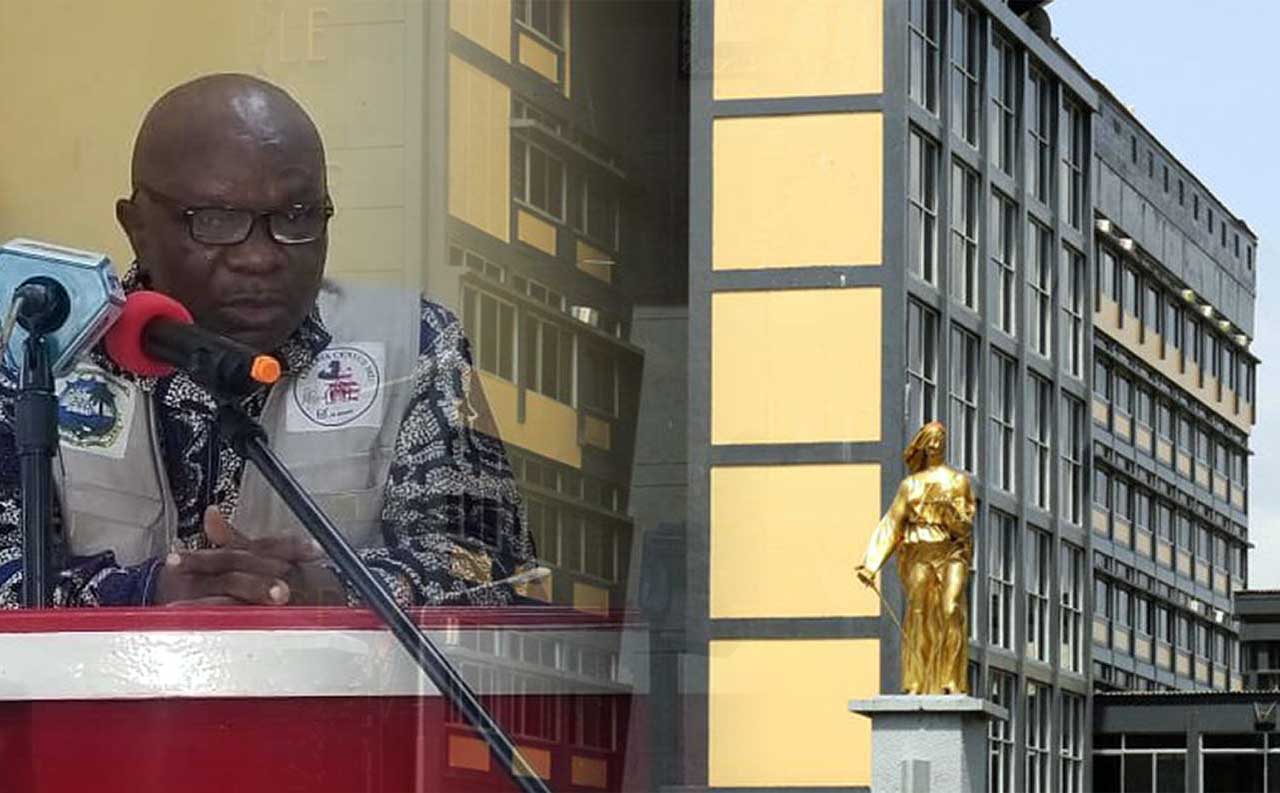The Liberia National Bar Association (LNBA) has expressed its disagreement with several key aspects of the Supreme Court’s ruling on April 23, 2025. In this ruling, the Court declared Speaker J. Fonati Koffa as the legitimate Speaker of the House of Representatives and deemed the actions of the Majority Bloc, led by Representative Richard Nagbe Koon, as unconstitutional.
In a press statement issued on Tuesday, April 29, 2025, the LNBA acknowledged the Court’s role in interpreting constitutional matters but respectfully disagreed with various elements of the ruling.
While affirming the Supreme Court’s authority as the final arbiter of constitutional and legal questions, the LNBA contested the Court’s interpretation and the practical implications of its ruling on the doctrine of separation of powers.
The LNBA clarified that a Bill of Information is a procedural tool aimed at clarifying the implementation of a judgment or bringing to the Court’s attention issues affecting its mandate. It should not replace mechanisms for resolving inherently political questions, particularly those related to the internal organization, leadership, or operational independence of the Legislature.
LNBA President Cllr. Bornor M. Varmah stated that the ongoing conflict within the House of Representatives, while involving constitutional questions, is fundamentally political in nature. He emphasized that this conflict requires a political resolution through institutional dialogue, consensus-building, and adherence to democratic norms. While the Court may provide interpretative guidance, the enforcement and implementation of its opinions in such matters predominantly rely on political goodwill and respect for constitutional boundaries.
“The LNBA is concerned that a repeated reliance on the judiciary to resolve legislative disputes may undermine public confidence in the independence of both branches of government and set a troubling precedent, allowing political actors to evade their responsibility for resolving internal conflicts.”
According to Liberian jurisprudence and practice, a Bill of Information is meant to clarify or enforce a judgment when there is confusion or obstruction. Although the Court’s decision to allow the Bill of Information was justified and procedurally sound given the ambiguity surrounding its previous ruling from December 6, 2024, the LNBA observed that the Supreme Court expanded the function of the Bill of Information by reaffirming and elaborating on its earlier ruling, effectively issuing a new substantive decision rather than merely clarifying the existing one.
This expansion risks transforming the Bill of Information into a de facto remedial tool, inviting future parties to misuse it for re-litigation instead of clarification, Cllr. Varmah stated.
The LNBA pointed out that in its December 6, 2024 ruling, the Supreme Court stated: “WHEREFORE AND IN VIEW OF THE FOREGOING, any sitting or action by members of the legislature not in conformity with the intent of Article 33 and 49 of the Constitution are ultra vires. Hence, members of the House of Representatives are to conduct themselves accordingly. The clerk of this court is hereby ordered to inform the parties, and it is hereby so ordered.”
Rule IV, Part 12 of the Revised Rules of the Supreme Court of Liberia describes the use of a Bill of Information as follows:
(a) A Bill of Information will lie to prevent a judge or any judicial officer from executing the mandate of the Supreme Court improperly.
(b) A Bill of Information will also lie to prevent any unauthorized interference with the judgment and/or mandate of the Supreme Court.
However, Cllr. Varmah emphasized that it is clear from this rule that a Bill of Information is intended to address situations where a judge or judicial officer improperly executes the mandate of the Supreme Court, or where anyone interferes with that mandate. “In other words, a Bill of Information may be brought against a judge, judicial officer, or any person who acts contrary to the mandate of the Supreme Court by disobeying, interfering with, or obstructing that mandate.”
The LNBA stated that the Supreme Court’s December 6, 2024 ruling did not contain a clear mandate that warranted a Bill of Information. Nevertheless, the Bar concurred with the Supreme Court on the need for clarification regarding the December 6, 2024 ruling.
“The Bar believes that the Supreme Court erred by allowing parties in the proceeding to use the Bill of Information to prompt the Supreme Court to issue a second opinion and judgment in the same constitutional case, which significantly differs from the first opinion in that case,” said the LNBA president.
Given its position regarding quorum in line with Article 33 of the Constitution, the LNBA has proposed that for any legislative session to be deemed unconstitutional due to quorum issues, the Speaker, Deputy Speaker, or any other ranking officer must be considered ‘absent’—meaning ‘not present and available.’
The LNBA clarifies that in this context, ‘presence and availability’ do not simply mean being physically located within the designated area. It also requires that these officials be properly seated among their colleagues and ready to fulfill their constitutional duties. Therefore, the LNBA disagrees with the Supreme Court’s assertion that Speaker J. Fonati Koffa was present and available for legislative business under the relevant circumstances.
The LNBA emphasizes that the interpretation of Articles 33 and 49 should align with the principles of democratic governance and the separation of powers. While the Court’s ruling aims to uphold constitutional order, it inadvertently presents challenges for the functionality and accountability of the legislature.
In light of these concerns, the LNBA urges all stakeholders, including the Legislature and the Executive, to engage in constructive dialogue. The LNBA is committed to fostering a culture of respect for the rule of law while advocating for interpretations that promote institutional harmony and democratic progress.
Cllr. Varman stated, “As members of the legal community, we are ready to provide guidance and support in navigating these complex constitutional issues. The LNBA reaffirms its dedication to upholding justice, protecting constitutional rights, and ensuring the stability of Liberia’s democratic institutions.”
Additionally, the LNBA is calling for the establishment of an Independent Mediation Committee to resolve the ongoing impasse in the House of Representatives. This committee should consist of eminent Liberians, such as former chief justices, LNBA leadership, members of the Interreligious Council, and civil society representatives, in line with the Supreme Court’s opinions. The mandate of this committee will be to facilitate dialogue among the involved factions and recommend a unified leadership framework for peaceful resolutions.



